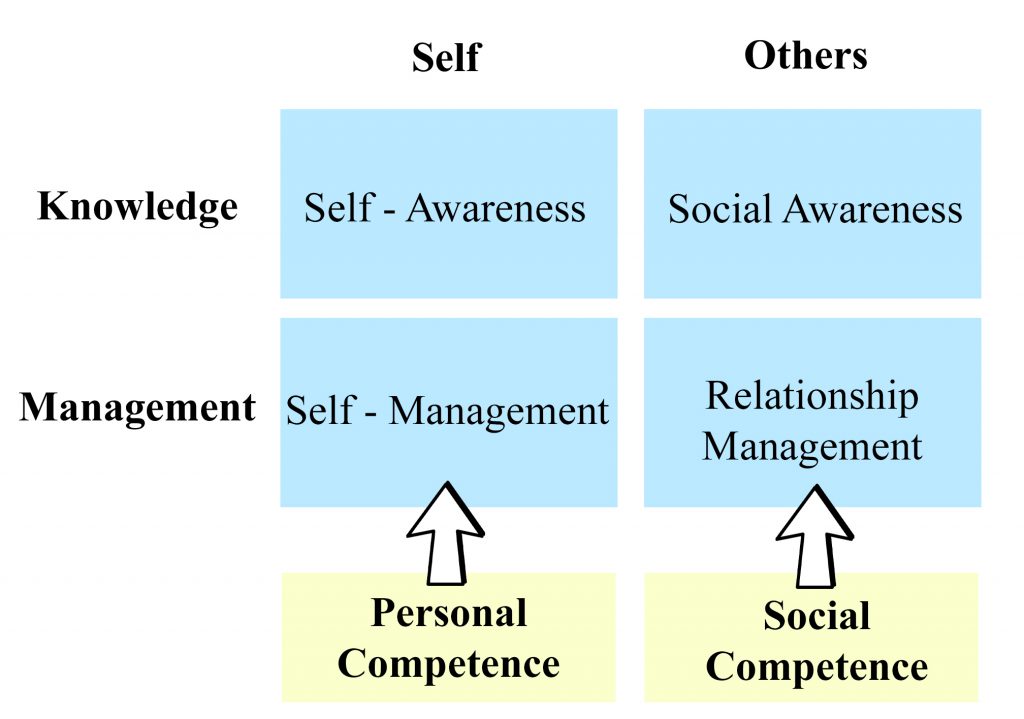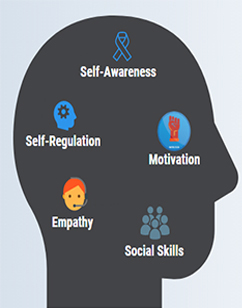What is that one thing that separates good leaders from great? What is that ‘ right stuff’ which makes some leaders extraordinary?
In a world where working with global teams is prevalent – that quality that separates failed and successful leaders is emotional intelligence.

Now, I do not mean that intellect is irrelevant. Of course, you need the skill, training, and expertise to get the job done. But as we move further up in the organization to mainly leadership roles, emotional intelligence matters more than the other abilities.
In his paper, What makes a Leader? Daniel Goleman, author of the best-seller Emotional Intelligence: Why It Can matter More Than IQ, states that :
” In other words, the higher the rank of a person considered to be a star performer, the more emotional intelligence capabilities showed up as the reason for his or her effectiveness. When I compared star performers with the average ones in senior leadership positions, nearly 90% of the difference in their profiles was attributable to emotional intelligence factors rather than cognitive abilities.”
Steps to Emotional Intelligence
The good news is that emotional intelligence like any other skill can be learned. Though like any other skill, it needs practice and commitment. The diagram below enlists the 4 steps or factors which lead to emotional intelligence.

(The above table is taken from the book – From Command To Empathy)
1. Self Awareness
Self-awareness means understanding one’s thoughts, feelings, strengths, shortcomings, needs, and motivations. It means using your best qualities to your advantage and working on those that pull you down.
People with high self-awareness are neither too hopeful nor overtly critical. They are realistic about thier capabilities, as well as others. They will easily be able to laugh at themselves and show a willingness to listen and learn.
One thing to definitely look for in candidates is the way they articulate their failures. Their security and candor while describing it and the lesson they learned will tell you a lot about them.
2. Self Regulation
Self-regulation to some extent is synonymous with or a direct result of emotional maturity. It means the control you have on your emotions. How much you watch your tone, words, and body language.
Emotional reactions can be controlled with practice. It is the difference responding and reacting. Reaction is uncontrolled, often filled with paranoia, blame, shame, regret and anger. Response means responding with the ability of thought and intellect, after considering all options.
These two qualities enhance your personal competence.
3. Social Awareness
As the way we work changes, and teams, groups and collaboration exercises take forefront, the ability to understand one another becomes of most importance. And that ability is Empathy.
An empathetic leader is able to gauge team spirit, understand the capabilities and emotional nuances of each member, and make informed decisions. S/he will know what task is suitable for whom, whom to mentor, whom to encourage, and how to retain talented employees.
Leaders with empathy can support and inspire employees to be their best. They are in constant emotional touch with co-workers, seniors, and juniors, making them invaluable and very popular in the organization.
4. Relationship Management
Humans are social animals and good relationships give us happiness, security, and meaning. Being well-liked and accepted by our family, friends, and society is important to us.
Good social skills are a culmination of the first three areas. It is important that we understand ourselves, as it helps in understanding others. Empathy helps us make deep, meaningful connections which in turn become our support network.
A person with good relationship management skills will be an excellent mentor, a persuasive negotiator, a great team player, and an inspirational leader. And will have high social competence.
An emotionally intelligent leader can monitor his or her moods through self-awareness, change them for the better through self-management, understand their impact through empathy, and act in ways that boost other’s moods through relationship management.
To conclude, by no means am I saying that IQ is not important. It is definitely needed to get you the job and needed for effectiveness but when you want to increase your competency and lead effectively, emotional intelligence matters more!

